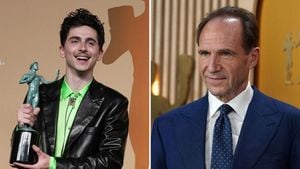Mesut Özil, the former star footballer known for his playmaking skills and notable career with Real Madrid and Arsenal, has officially stepped away from the football pitch to engage in Turkish politics. After retiring from professional football with Istanbul Basaksehir in 2023, Özil has been elected to the ruling Justice and Development Party (AKP), as confirmed at the party's congress held on February 24, 2025, in Ankara.
The 36-year-old Özil, born to Turkish parents, has had longstanding ties with President Recep Tayyip Erdoğan, the co-founder of the AKP and a dominant figure in Turkish politics since the party's inception. Özil’s new role places him on the AKP's Central Decision and Executive Board, known as the MKYK, which includes 75 members. His appointment follows Erdoğan’s re-election as the party leader for the ninth time, solidifying the AKP's consistent governance within Turkey since 2002.
Özil's leap to the political arena isn’t just a career change; it embodies his complex relationship with both Turkish identity and the political challenges faced by dual nationals. This shift has been viewed with mixed reactions, particularly following the controversies surrounding Özil during his time as part of the German national team, where he faced accusations of racism and insufficient support from the German Football Association (DFB). Reflecting on his experiences, Özil once stated, “I am German when we win, but I am an immigrant when we lose,” a sentiment highlighting his struggles with identity amid his national allegiance.
The AK Party is known for its conservative policies and its connection to the Islamic roots of Turkish society. Özil's association with Erdoğan is not new; he had previously chosen Erdoğan as his best man during his wedding to former Miss Turkey, Amine Gülse, which facilitated his public relationship with the president. This connection, coupled with several instances of Özil being photographed with Erdoğan, particularly during the 2018 Turkish parliamentary election, has sparked criticism and backlash from various quarters, including the German media and political groups.
At the heart of Özil's political endorsement lies his intention to leverage his fame for philanthropic goals, aiming to improve conditions back home through political engagement. Reflecting this commitment, Özil recently articulated, "This decision to enter politics has been very important to me, as I look to use my platform for the benefit of our nation.” His aspirations to influence public policy may resonate with his fanbase, especially among Turkish citizens who saw him as emblematic of multicultural Germany before his exit from international football.
Last seen on the pitch representing Istanbul Basaksehir, where he concluded his club career, Özil built his footballing reputation through dedication and technical skill, assisting 258 goals throughout his career, earning the title of one of football's greatest playmakers. Nonetheless, his international career faced turbulence, particularly after Germany's disappointing exit during the 2018 World Cup, which was characterized by public and media scrutiny. Özil, reportedly disenchanted by the treatment he received, accused the DFB of racism and stated, "My job is football player and not politician, and our meeting was not an endorsement of any policies," defending his previous associations with Erdoğan.
The political climate surrounding Özil's entry raises questions about how his status as a dual cultural influencer will affect Turkish politics and youth engagement. He is not alone among athletes entering the political fray; notable figures such as former Aston Villa defender Alpay Özalan have previously made similar transitions, yet every move is likely to draw international attention and skepticism.
Özil's decision is significant not merely for his personal career, but reflects the broader trend of athletes stepping onto political stages, influencing public discourse, and championing causes. While he navigates this new path, the scrutiny he receives may be similar to his time on the field; expect continued debates over his political views and affiliations.
With his potential influence and the backdrop of Turkey’s current socio-political challenges, Özil’s foray could shape perspectives on national identity, diaspora issues, and the bilateral connections between Turkey and Europe. His statements to uphold Turkish values, expressed alongside Erdoğan’s vision, will be pivotal as he assumes his political responsibilities, making it increasingly likely for him to advocate issues relevant to Turkish citizens on both national and international stages.



